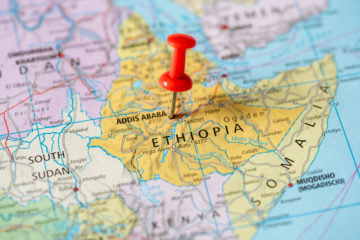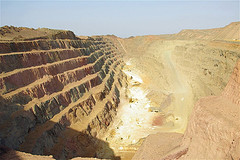Impacts of the COVID-19 Pandemic on the Water-Energy-Food Nexus
In a recently published journal article, we argue that there is a pressing need for a systemisation of the impacts of COVID-19 on water, energy and food security. We also explore the tangible impacts of the pandemic, including negative aspects, like increase in medical waste, and positive aspects, like some improvements in air quality and carbon emissions. The COVID-19 pandemic offers an opportunity to examine the impacts of system-wide crises on key supply sectors, such as water, energy, and food. These sectors are becoming increasingly interlinked in environmental policy-making and with regard to achieving supply security. Now, there is a pressing need for a systematization of impacts and responses beyond the disruptions on individual supply sectors. Specifically, this paper provides …

Lockdown and the Climate Crisis
In 2020, lockdowns around the world have reduced energy use and carbon emissions on an unprecedented scale. However, the current COVID-19 outbreak may be a double-edged sword in the fight against climate change. Individual countries are imminently due to report their carbon reductions, as outlined in the United Nations-brokered Paris Agreement. Although pre-Coronavirus crisis global greenhouse gas (GHG) emissions are expected have grown by 1.9%, recent CO₂ calculations in Europe are predicting a surprising scenario: countries may actually hit their stated reduction goals. For instance, the German climate target for 2020, which until February was considered unattainable, should now be met. Due to this year’s mild winter, and, above all, the Coronavirus crisis, the target of 40% CO₂ savings—unlike climate change targets …

How Natural Resource (Mis-)management in the Nile River Basin May Threaten Stability
As the Grand Ethiopian Renaissance Dam (GERD) nears completion, the Nile River Basin is at a crossroads. The next few months will be consequential for relations between countries in the river basin—notably Ethiopia, Sudan, and Egypt—because dam management upstream could have consequences for the supply of water downstream. Although the three countries began discussions after the project was announced in 2011, they have yet to reach an agreement on how the new reservoir should be filled and managed. Despite the absence of an agreement, Ethiopia intends to begin filling the reservoir this July. This article describes the competing perspectives between countries, explains reasons for the lack of an agreement, and provides recommendations for addressing the challenges of the GERD. If …

From Oil Wells to Blockchains: Revolution or Reality?
Blockchain is an emerging technology that has drawn considerable interest from start-ups, technology developers, financial institutions, governments, and think-tanks. They all identify blockchains as having tremendous potential to bring significant benefits. This technology acts as an electronic ledger and allow transaction to be carried out between parties without interference by third parties like banks. Energy supply firms are also increasingly looking the potential of blockchain technology. Blockchain has emerged at just the right time. Other revolutions within the energy sector – the decentralization of the electrical systems, the development of autonomous electric vehicles and the gradual deregulation of the energy industry – are opening the door to blockchain. By combining blockchain with new paradigms, new consumption models will emerge and …

Should America Care About Energy Independence?
For the past forty years, the United States has been dependent on foreign oil. In the early 1970s, declining domestic production and America’s ever increasing thirst for oil made dependency on imports a necessity, whilst the OPEC Revolution and the 1973 Arab oil embargo seemed to also make dependency a serious threat to national security. Beginning with the formulation of Nixon’s “Project Independence”, the US has sought to reverse this worrisome position and restore what is usually imagined as a quasi-paradisiacal state of nature: energy independence. Yet, while president after president emphasised the importance of tackling the problem, US net oil imports kept rising, until they peaked in 2005 at about 12.5 million barrels of oil per day, 65% of …

On the line: in Romania, mining brings foreign investment at a cost
Many people instantly associate the ‘resource curse’ with images of African blood diamonds and mining-induced population displacement in Latin America. Few think Western countries are susceptible to such problems. But Romania, and other countries in Eastern Europe, are experiencing their own form of the paradox of plenty. Since the fall of communism Romania remains economically weak. Severely affected by the global economic crisis, its GDP fell more than 7% in 2009, forcing the Romanian government to request a $26 billion IMF emergency assistance package. Following this, the Romanian government adopted drastic austerity measures, resulting in a further 1.3% GDP contraction in 2010. Things are looking better since then; the economy strengthened in 2011. But Romania still lags behind its more …









